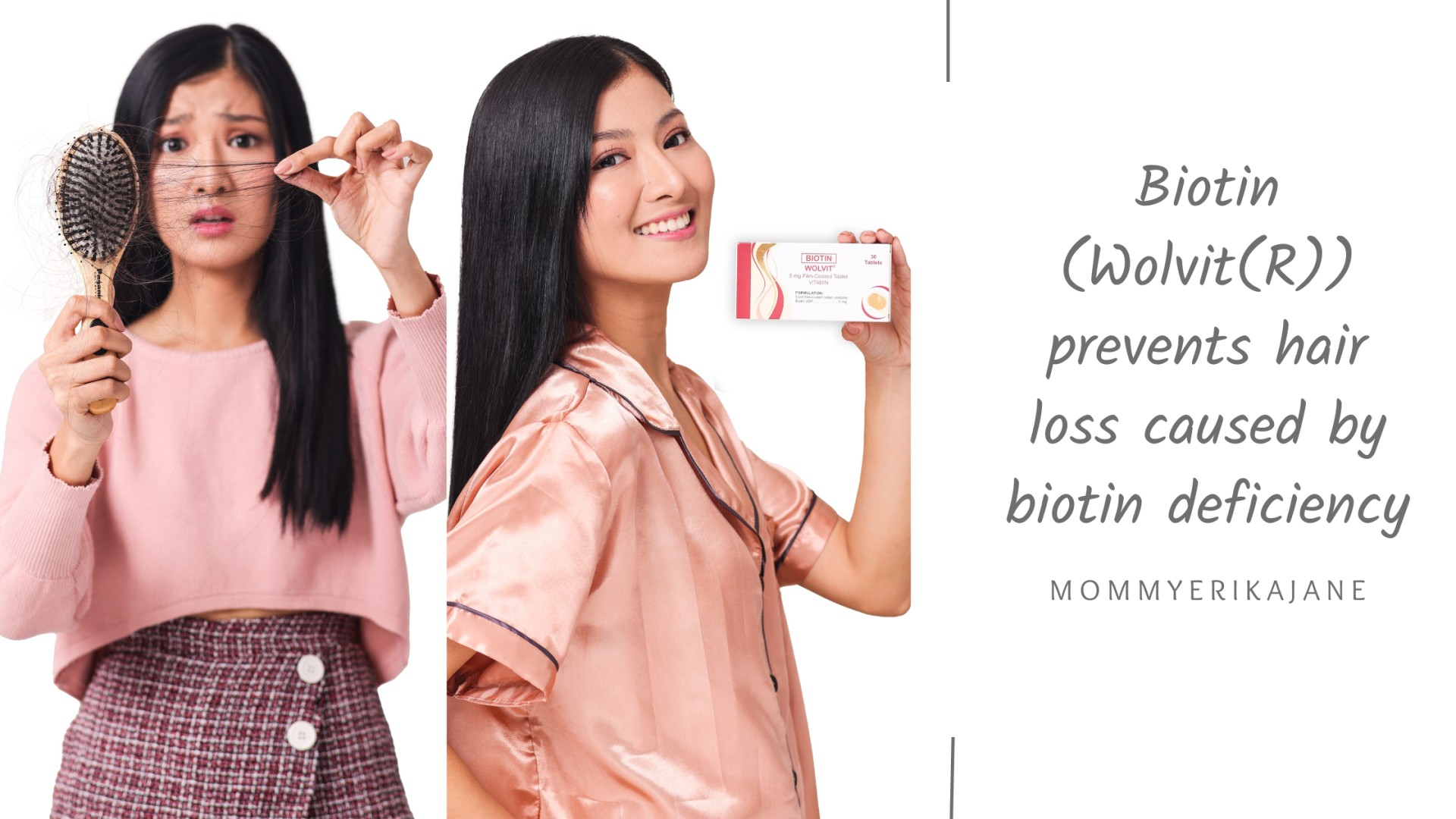A full head of hair is commonly associated with feminine allure or masculine appeal. No matter how it’s cut or styled, thick, smooth, and shiny tresses enhance a pretty face or lend a kind of charm to plain and homey ones. In fact, nothing gives the average man or woman a better confidence boost than a lush, well-styled mane.

Thus, it can be quite distressing for anyone to note signs of early hair loss, such as regular
shedding of hair in the shower or waking up to find significant amounts of hair strands on one’s pillow.

Providentially, before all these lead to the more visually upsetting stage such as a “receding
hairline,” there is a product that’s formulated to help restore the thickness of your hair and
prevent serious hair loss: Biotin (Wolvit®).
YOUR HAIR LOSS MIGHT BE CAUSED BY BIOTIN DEFICIENCY
Biotin is a key part of the body’s protein synthesis, especially in keratin production. Keratin is the most important protein that the body needs to produce and maintain healthy hair and skin—plus better nail growth.

In a study published in the Skin Appendage Disorders journal, it was found that common
afflictions resulting from biotin deficiency include alopecia, eczematous skin rashes, seborrheic dermatitis, conjunctivitis, and more. This often manifests as excessive hair loss, brittle nails, or dry skin.
These are conditions that may produce an emotional toll on the afflicted, as well. After all,
excessive hair loss can cause your self-confidence and self-esteem to plunge, and feelings of insecurity to set in.

Marco Elmer Manus, Group Product Manager at Kusum Healthcare Pvt. Ltd. Brand Office,
spoke on how Biotin (Wolvit®) helps those suffering from biotin deficiency. “The signs of biotin deficiency can be difficult to deal with,” said Manus. “One starts to worry about their health and lose confidence in their looks. it’s disquieting! That’s why we want to tell everyone, ‘Hey, relax! There are things you can do. A good diet, regular exercise, and taking Biotin (Wolvit®) will help.’”
BIOTIN IS GOOD FOR YOUR HAIR, NAILS, AND SKIN
Manus asserts that there’s no need to be alarmed when hair loss starts setting in. A healthy
lifestyle combined with Biotin (Wolvit®) provides the body the biotin it needs to produce healthy hair, skin, and nails.

A study conducted by the Institute of Dermatology and Venereology of the National Academy of Medical Sciences of Ukraine found that the use of Biotin (Wolvit®) “has positive effect on the structure of the skin and its appendages (hair, nails).” In a review of 18 cases—published in Skin Appendage Disorders—where biotin was used in response to hair loss, it was found that all showed evidence of clinical improvement.”

All this gives hope to those suffering from hair loss caused by biotin deficiency. So for those
looking to prevent early hair loss, Biotin (Wolvit®) is here, reminding everybody,
“Don’t lose it! Use Biotin (Wolvit®)!”
Available in all leading drugstores nationwide.
REFERENCES:
A Review of the Use of Biotin for Hair Loss by Deepa P. Patel, Shane M. Swink, & Leslie Castelo-Soccio. Skin Appendage Disorders. https://doi.org/10.1159/000462981 .
Optimizing the treatment of onychomycosis using products that improve the structure of the nail plate and its growth by Y.F. Kutasevych, I.A. Oleynik, A.S. Chehovskaya, I.A. Pyatikop. State Establishment “Institute of Dermatology and Venereology of the National Academy of Medical Sciences of Ukraine.”





